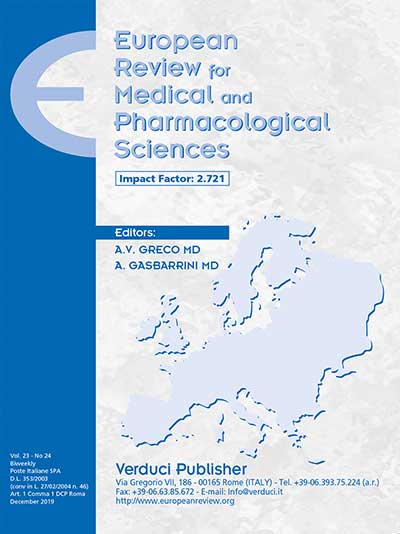Abstract
Objective: Breast fibroadenoma is a common finding in young women and actually accounts for the majority of benign breast lumps. Fibroadenoma does not require any treatment unless clinical symptoms (mostly mastalgia) or histological markers of cancer risk (atypia) impose specific medical or surgical intervention. In symptomatic fibroadenoma, anti-estrogenic treatments provided evidence of success. Yet, these therapies are often associated with relevant side effects that lead to drug treatment discontinuation. Additionally, in such cases, relapse is a frequent issue. Therefore, an optimal strategy is still warranted. Boswellia, betaine and myo-inositol have already been proved to modulate different pathways – inflammatory, metabolic, oxidative and endocrine processes – in a wide array of human tissues. Based on that background, we hypothesized that these substances can effectively synergize in inducing the regression of fibroadenoma.
Patients and methods: We included 64 patients ≤ 30 years of age with fibroadenoma. The patients were randomized into two groups. The experimental group was treated with an association of Boswellia, betaine, myo-inositol, B-group vitamins and N-acetylcysteine for 6 months; otherwise, the placebo group was treated only with B-group vitamins and N-acetylcysteine. Patients were monitored at the enrollment and the end of the study for evaluating the clinical response.
Results: A significant clinical improvement was observed in the experimental arm. Fibroadenoma median volume reduction averaged 17.86% in the experimental group and 5.96% in the placebo group. Moreover, 14 out of 36 (38.88%) patients showed a reduction of fibroadenoma volume compared to 5/28 (17.85%) observed in the placebo group.
Conclusions: A supplementation with Boswellia, betaine and myo-inositol reduces fibroadenoma dimension in young women. No relevant side effects have been recorded.

